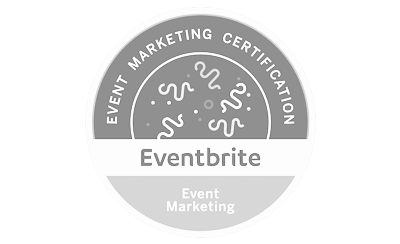
Lawyer website profiles are so much more important than most law firms realize. Bio pages play a crucial role in SEO while revealing what the firm thinks is important. They are the primary individual branding locations for the firm’s most valuable assets – its lawyers.
Each lawyer’s profile is one piece of a whole – the bio pages should be written in the firm’s voice and in its consistent brand messaging. It is common for law firms to throw bios together haphazardly when a new lawyer joins the firm, often using a disharmonious profile picture and generic copy. However, each profile should be written and designed to support the lawyer, all of the other lawyers’ profiles, and the law firm’s brand as a whole.
Great profiles provide information about the lawyer’s professional skills, introduce the lawyer, and guide the website visitor toward further conversations with the law firm. Segmenting the lawyer’s information (pages of uninterrupted text are boring) and providing multiple methods of contacting the attorneys and the law firm accomplish the primary goals of a lawyer website biography page: to find potential clients.
GETTING TO KNOW YOU: WHAT TO INCLUDE IN A LAWYER WEBSITE BIOGRAPHY
Most of the long-term accepted components of a lawyer’s website biography are still important to include today, although the location and presentation of the information may differ. I recommend putting most of the boring but necessary data points into a sidebar, broken up into sections and bulleted lists.
- Who You Are: A lawyer’s website biography must highlight his or her name, job title, and contact information in a very prominent way. The top reason that website visitors arrive on a bio page is to find a way to reach a lawyer. Website vendors that push you toward excluding email addresses are mistaken. Do not hide a lawyer’s email. Contact information should also include a downloadable v-card that references the lawyer’s practice areas and any individual or firm branded social media links (e.g. LinkedIn). In addition to telling a reader who you are, you should also show them by including a professional high-resolution headshot. Keeping that headshot as the consistent digital image of you across all of your digital profiles will help users easily recognize you online and hopefully recognize you if they meet you in person.
- Educational and Professional Experience: Where you went to college, law school, and/or other schooling allows for a likely point of connection with potential clients and adversaries. For example, in Texas, wearing an Aggie ring almost immediately allows Texas A&M graduates to recognize and support each other in any setting – the same is true for putting that educational information on a website bio. Employment history is a credibility-builder, especially if you have worked for law firms with significant name recognition. Listing your years of work also shows how long you have practiced and handled the types of matters you are focusing on at present. The inclusion of any board certifications would also be appropriate in this section.
- What You Do: Highlighting and emphasizing the lawyer’s practice areas is very important, especially at larger firms with varied practice groups. Showcasing your legal focus will help the reader know if you are the right person to talk to about their issue. Some lawyers worry that limiting their practice area list will pigeonhole them into only being able to acquire those types of matters for their law firm, but it’s important for online readers to quickly understand your area of expertise.
- Where You Work: A short list of your licenses, admissions, and states litigated in pro hac vice will quickly show the reader whether you are a local, statewide, or nationally practicing attorney.
- Representative Matters: A sure boost of confidence for any potential client is seeing that a lawyer has successfully handled a similar matter before. Don’t just display never-ending pages of case citations – no one will read them. Do use case studies, images, and awards to showcase your victories in an easily digestible and meaningful way for online readers.
- Awards and Honors: Include anytime when the outside world acknowledges your success and the caliber of your representation. This is an independent vote of confidence for your legal skills. Do not assume that your website visitors will know what your awards or honors mean or how many lawyers win them each year – do tell them what makes each distinction meaningful and why you were chosen, if applicable.
- Professional Association Memberships: Showing potential clients that your profession means more to you than just a paycheck can go a long way toward establishing your credibility as not just an attorney, but also a human being. Peers and potential clients alike trust lawyers that take the time to give back to the legal community, especially by serving in leadership positions.
- Publications and Speaking Engagements: List when you are viewed as an industry thought leader. This includes when you are asked to contribute to trade publications, law journals, media interviews, continuing education panels, and more. Letting the world know that at least some external sources choose you to be their source of information for a particular topic speaks volumes about how you are perceived.
- Community Involvement/Personal Detail: Many lawyers try to avoid including personal detail in their biographies, including some female attorneys who avoid mentioning that they are mothers at all costs. I disagree with this approach. I think the more human we can make ourselves, the greater the chance that we can connect with another person. Of course, this information must be kept appropriate and it should avoid divisive topics or statements. In today’s digital landscape, failing to let the public know who you really are can prevent you from even obtaining a first meeting with a prospect.
KEEP IT CURRENT
After you input, optimize, and publish your digital bio, be sure to keep it updated. Don’t let all of the work put into making your webpage great go to waste because you fail to keep it current. If you gather all of the necessary information, you can use it for purposes beyond your website – the biographical data you organize can also help you claim and build out your lawyer directory listings and help you with a speaker’s biography for your next speaking engagement.














Leave a Comment